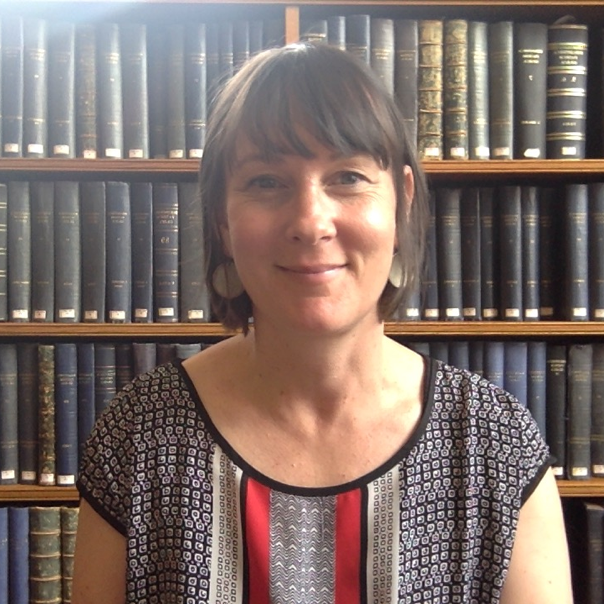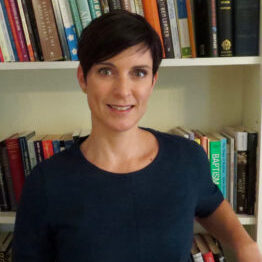Episode Transcript
[00:00:04] Speaker A: You're listening to by the well, a lectionary based podcast for preachers recorded on the land of the Wurundjeri people.
Hello, I'm Robyn Whittaker.
[00:00:17] Speaker B: And I'm Sally Douglas.
[00:00:18] Speaker A: And this is the fifth Sunday of the Easter season and we're going to.
[00:00:23] Speaker B: Be exploring all four of the readings. So the readings are Acts 11, verses 1 to 18, Psalm 148, Revelation 21:1 6 and John 13, 31, 35. And because three are in the New Testament, we thought we'd start with the Old Testament. So we're going to talk about Psalm 148 first.
[00:00:43] Speaker A: And you love this psalm, Sally, tell us why.
[00:00:46] Speaker B: I really do love this psalm. It's an absolute banger. And if, if you wanted to read this responsively in your congregation, that could be cool. I reckon you could get out drums or shakers or anything like. It's such a celebratory psalm. So it's in a collection of praise you God Psal, Psalm 146, Psalm 147, and then Psalm 148. And in Psalm 148, the focus is on nature and all of nature praising God together. And it's just such a beautiful sense of the sun and the moon singing, the creatures of the earth, the creatures in the sea, everything. So it's not this anthropocentric focus where humans praise on behalf of creation, none of that at all. Here it is the very creatures of the earth, all in this kind of sense of bliss. I think it almost has about it, praising God, praising the sovereign one. And it's including the planets and the, you know, the universe, the solar system, everything.
[00:01:44] Speaker A: I love that the sea monsters are in there.
And of course, this, we need to remember this because it's, it's not something I think we talk about a lot, but it was there last week in the Revelation, reading, reading, where again, there's creatures in the sea and the celestial planes and all the heavenly, like, everything praises God. So there are multiple points in the Bible we do get this kind of sense of the cosmos itself. Absolutely. And including humans. So again, I was struck in like, in verse 11, you know, it's the kings of the earth, but it's also all peoples. So when people are mentioned, it is across tribe and language and culture and gender.
[00:02:25] Speaker B: All peoples, absolutely. Interestingly, in the psalm, God isn't referred to as king. God is kind of beyond human constructs of kingship here. But the kings and the people are called to worship and so in some senses, I think it has connections with the first creation story. You know, God speaks everything to being and everything is good. And here we get this good creation singing back. And so I think it's important for us to remember this kind of imagery within the biblical text, because for so long it's been convenient for people with power to have a very different understanding of creation, to use a biblical text in other ways. For example, to say humans are at the center or humans are called to have dominance rather than stewardship. So this is a beautiful reminder to us of all of creation. I mean, we might want to go outside and just, you know, look at the stars and think about their singing. And there's interesting stuff happening in science with NASA finding, you know, sound, sound waves and different things. You know, who knows what is at work? But, you know, the beautiful poetry and metaphors have such profound wisdom about the sacredness of all things.
[00:03:23] Speaker A: Yeah, that's right. And yeah, you mentioned the goodness of creation, the expansiveness here.
And there's still this sense of the particular, you know, the people. The people of Israel are the close people.
[00:03:37] Speaker B: That's right.
[00:03:38] Speaker A: The inclusion of everything in that. And just, you know, spoiler alert, where we're going in Acts. Acts, of course, in terms of pairing readings, is going to be this. The vision of Peter with the inclusion of the Gentiles.
[00:03:49] Speaker B: Absolutely.
[00:03:50] Speaker A: So you've got a psalm that speaks again to the expansiveness of what, what. What God gathers up.
[00:03:57] Speaker B: That's right, exactly. And I think even in Revelation, we'll pick that up again. So the expansiveness of God, but the particularity of God, of particularity of people, and then the particularity of God coming to us in a particular person, you know, so it's this. This holding together of that tension. It's not such a God who's so expensive that we're all just, you know, little mini mes that are the same and irrelevant to God. Like there is. Yeah, that personal aspect as well.
[00:04:22] Speaker A: And when I read psalms like this, I'm reminded, you know, of the passage where Jesus says that, you know, if. If they were s. And even these rocks would cry out. Right. So we get that in the Gospels, the sense that worship does not rely on us as humans. Like, that's not to say we don't have a calling to gather in worship and for worship to be central to our life of faith. Yeah, but it doesn't rely on us.
[00:04:45] Speaker B: No. And I think the sense of worship in the psalm is of sheer delight. It's not that kind of Obligatory. We have to worship God. It's this creation just bursting with delight in being and being held in love and. And an invitation for all of us into that.
[00:05:02] Speaker A: Shall we turn to Acts, then?
[00:05:03] Speaker B: Yes, let's do it. So we get.
So in this Easter season, we get this kind of unusual pattern where we have more New Testament readings, and it is this opportunity to dive into Acts, and often Acts is a bit neglected. I think that's.
[00:05:24] Speaker A: I think that's right, because we get big chunks of the Gospels and Acts is a long book. It's one of the biggest texts in the New Testament and contains all these stories of the early church. I mean, not really a church yet. The early Christian movements figuring things out.
[00:05:40] Speaker B: That's right.
[00:05:41] Speaker A: And the Holy Spirit being very active and all these amazing things happening.
And. Yeah. Continuing the ministry of Jesus in. But in his followers now.
[00:05:51] Speaker B: That's right. And to be clear, in.
In the words of one particular person's view. So it's, you know, we read it with our questions and wondering. Really. It's also really quite like that. But it's certainly a really amazing text to engage with as we continue to read Paul's letters, for example, about another perspective about the early church.
[00:06:09] Speaker A: That's true.
[00:06:09] Speaker B: It's.
[00:06:10] Speaker A: It's not the only one. And at times it does give a very glowing and positive. You know, all these miraculous. It can make us in the modern world feel a little bit like our churches are kind of not quite up to scratch.
[00:06:21] Speaker B: Robyn. That's exactly my concern about it. It's like, this is what we need to pair it with Paul complaining about everybody and all of the things that are going wrong because he gives us a bit of, okay, we've been infighting for a very long time. Yes. It's not that they've all had it perfectly and we've gone downhill. Yes.
[00:06:36] Speaker A: Yeah.
Christianity has always had these tensions right in the heart of it. And here we are in one of the biggest tensions of the early Christian movement, which is the place of Gentiles. Because this is a Jewish movement.
[00:06:51] Speaker B: That's right. And it's so hard for us, if we have not grown up in a Jewish context to understand this. The question was never how could Jewish people be in. The opposite question is the focus of attention. How could non Jewish people be part of this? Yeah.
[00:07:04] Speaker A: How. Why would God be calling them to be part of this? That's absurd. They're not God's people.
[00:07:08] Speaker B: That's right. And if they were to be. Well, then they should become like us.
[00:07:12] Speaker A: Yes.
[00:07:12] Speaker B: Yeah.
[00:07:14] Speaker A: So it raises all sorts of questions. And just before we get to this section in chapter 11, we've had reports of the Holy Spirit being very active. Yeah. Sometimes without people. Right.
[00:07:26] Speaker B: Yeah. It's extraordinary. So chapter 10, Cornelius. Now, this is extraordinary, Cornelius. Because he's a centurion, we're told.
[00:07:33] Speaker A: Yeah.
[00:07:34] Speaker B: So this is the enemy.
Like a symbol of the enemy status. Yes.
[00:07:39] Speaker A: A Roman soldier who.
[00:07:40] Speaker B: Terrifying. So Peter's called to go visit him. Imagine how he's feeling. Like, really, I'm not sure where I want to be going. Did you know what happened to Jesus? Like, this does not feel like a sensible thing to do. And yet he. He sees witnesses there, Camillus and the family, the experience of the spirit. And he's like, oh, yep. How can I. How can I say that God, these people, these non Jewish people can be part of this? If this. If God is choosing to be part of this, the Spirit is being poured out on them.
[00:08:08] Speaker A: Yes. So we've had that already happening, Cornelius. And then this kind of expansive idea that the Holy Spirit is being active and is with and, you know, changing lives of gentile people, sometimes even prior to, or often baptizing with water.
[00:08:25] Speaker B: Yeah, that's. And that's really clear in this text. Yeah, yeah. The spirit is first, and then they go, oh, well, we better baptize. Like, you are being clearly blessed by the spirit.
[00:08:33] Speaker A: Yeah, that's right. So we were kind of confirming that in baptism rather than the sense of an ownership of the spirit. Right. The spirit is active before human rituals and other things.
[00:08:43] Speaker B: Amen. So now we get to the point where Peter has to justify what his done this. Why has he gone to this house of non Jewish people? Like, it's unholy to do this.
[00:08:53] Speaker A: And that's the key question. Right. The Jerusalem leaders, sorry, are saying, why are you going to the uncircumcised? And why are you eating with them?
[00:09:02] Speaker B: That.
[00:09:02] Speaker A: That makes Peter unclean.
[00:09:04] Speaker B: That's right.
[00:09:05] Speaker A: In terms of Jewish purity laws.
[00:09:07] Speaker B: Exactly. And so if he's then associating with them, well, then that risk their. Their contamination. Like, this is serious, serious stakes.
[00:09:15] Speaker A: And I was reading a bit of Willie Jennings commentary, and he really points out that Peter makes the argument to that big question, which is really an accusation. It's a. What are you doing with the faith here? Because, you know, you've crossed a line. There are clear boundaries. And Peter draws on experience. He tells them about a vision. He tells them about sensing what the Holy Spirit said to him. He has no proof. He has no texts to point to it's sheer experience, as he, probably somewhat vulnerable, vulnerably has to say, this is why I did what I did. It's this spiritual impulse. I have this sense of where God.
[00:09:56] Speaker B: Is leading me and what I've witnessed in these other people.
[00:09:58] Speaker A: Yeah. So, yeah, he testifies to what the spirit's doing. They could have completely rejected that.
[00:10:03] Speaker B: Yeah. And I think he's aware of that because he says, these others were with me, they said. Which is fair enough, too. Like, this is a massive claim to be making.
What I find fascinating in all of this is that earlier Peter said to have said, I know that God has no partiality, but there's a difference between knowing something intellectually and then being confronted with, oh, you meant those people.
[00:10:25] Speaker A: Yeah. You sure?
[00:10:27] Speaker B: Like, I know the notion to love everybody, but you meant. Did you mean them? You know, this is such a human response that we can agree with something intellectually, but it actually hasn't touched our hearts at all.
[00:10:37] Speaker A: Yes.
[00:10:38] Speaker B: Yeah.
[00:10:38] Speaker A: Or it doesn't make it easy.
[00:10:40] Speaker B: Oh, no.
[00:10:41] Speaker A: Because we know that the inclusion of the Gentiles would ripple out and be a point of contention at many points. You know, like, in terms of what that actually means, do they need to be circumcised first?
[00:10:51] Speaker B: Right.
[00:10:52] Speaker A: Can you imagine? It's like having a completely different kind of subcultural group. Join your community of faith.
[00:10:58] Speaker B: Yeah. Which is tiny and new.
[00:10:59] Speaker A: Yeah. And you're still trying to figure out your own identity as opposed to other Jews who don't believe in Jesus. And now you're being asked to consider all these other people who bring their traditions in. And anyone who's been part of multicultural traditions, churches that have merged knows just how hard this is.
[00:11:19] Speaker B: And also, even in the last century, the notion that women could actually have the authority to be ordained and to be preachers like that, that has been. That was suppressed for centuries. So even that debate in really quite recent history is, you know, we see the Spirit in them as well. Yeah. You know, in women. And so that they.
[00:11:37] Speaker A: Yeah, No, I think there's lots of contemporary examples like that of where the church in the modern world has wanted to draw boundaries, like around women's leadership. And it has been other people witnessing to. I see the gifts of the Spirit in this person, and this person can witness to their own experience of God and their own sense of call.
[00:11:55] Speaker B: Yeah.
[00:11:57] Speaker A: And. And it's. It's. Who can recognize that. And still there are some churches who don't. So that remains a boundary line.
[00:12:03] Speaker B: Exactly. Exactly. And so that notion. I love that. So in John's gospel talks about the Spirit will move where she will. It's. Yeah, here's the evidence. And she. And she'll work with who she will work with. Yeah.
[00:12:15] Speaker A: What else do we want to say about this text? So.
[00:12:17] Speaker B: Well, it could be interesting to explore with the community who are the people. Might be uncomfortable to have this kind of conversation, but at least we'd be able to think about who were the blocks we have in our community. You know, and it could be like, quite local, like other people in that suburb or the people who vote like these. Like, you know, I think that ongoing invitation. We've just had elections recently.
How are we speaking about people who vote for the party that we detest.
[00:12:42] Speaker A: And we think is maybe profoundly unchristian? But we have Christians in our community who.
[00:12:46] Speaker B: Yeah. So are we embodying love to. That doesn't mean. I'm not talking about agreeing with them or anything like that, but are we embodying love and dignity and respect towards them?
[00:12:54] Speaker A: Yeah.
[00:12:55] Speaker B: Which we might come back to when the John reading.
[00:12:57] Speaker A: Yeah, that's right. I was going to say nice segue to John. We're not there just yet.
Yeah. I mean, I think this is a really interesting thing to think about in those contemporary terms, to think about who we exclude and limit and maybe even in things like baptism.
[00:13:17] Speaker B: Yes.
[00:13:17] Speaker A: But I love how it ends that when they hear this witness, this testimony to Peter's experience of God.
[00:13:24] Speaker B: Yeah.
[00:13:25] Speaker A: And what the Spirit is doing, it says they were silenced.
[00:13:30] Speaker B: Yes.
[00:13:30] Speaker A: Like there's something about the power of personal witness to what God's doing in your life that leaves them that. With no argument.
[00:13:39] Speaker B: And then.
[00:13:40] Speaker A: And then they praise God.
[00:13:41] Speaker B: Yeah. I mean, maybe the other invitation of this passage, Robyn, is for people to think about how often in our church communities are we talking about our experiences of the Spirit.
[00:13:50] Speaker A: Yeah, I know. We're not so good at that often, are we?
[00:13:52] Speaker B: Not very good. And I don't mean boasting. I had this great experience and you didn't. Ha, ha. But a genuine place for us to offer shared testimony of. I've had this experience in prayer.
[00:14:03] Speaker A: Yeah. And this is how it changed me.
[00:14:05] Speaker B: Yeah.
[00:14:05] Speaker A: Right. Because ultimately, experiences of God do change us. It can transform us, including our ideas about a whole lot of things.
I think that's right. And.
And even the last line here, I think is, you know, they praise God. And what they praise God for is that repentance leads to life. And even the Gentiles now know this. So again, bringing focus back to God and what God's done right that the repentance God offers or the repentance that God receives and takes on leads to life. It's not our own human pat ourselves on the back for how inclusive and amazing we are because we're not.
[00:14:45] Speaker B: Yeah. And it's all for all of us. They're called a turnaround. There are things we need to turn away from as we turn to God, but that it all leads to life. Yeah. Yeah, that's right.
[00:14:54] Speaker A: Okay. Book of Revelation.
Did you know you could join our Facebook group by the well for extra content and discussion.
[00:15:08] Speaker B: Okay, let's talk about Revelation.
[00:15:11] Speaker A: There's a lot in this passage, even though it's just six verses. So for those who've been following Revelation, we've jumped forward a huge chunk. We're now kind of at the happy end part.
[00:15:23] Speaker B: Mr. Music.
[00:15:25] Speaker A: The lectionary skips out a lot of the violence along the way, but we're in this final vision of the new heaven and the new earth. And the first thing to say is, new is good. So newness kind of almost sandwiches this reading. So when we get down to verse five, the one on the throne, which is how God is described at points, is I am making all things new things. So there's new songs, there's new outfits, there's new, new things in this text. And new is good, which it often isn't in our church.
So just a reminder, new can be good.
But we have this image here of the whole of creation kind of being rolled up, if you like, and a new heaven and new earth. And there's this little line in verse one that the sea was no more, which is symbolic because the sea in the biblical tradition is this chaotic force.
[00:16:20] Speaker B: Right.
[00:16:20] Speaker A: And yeah, in creation, God kind of orders the sea.
[00:16:24] Speaker B: Yeah.
[00:16:25] Speaker A: So the fact that the sea is no more is because anything that is not life giving. Right.
[00:16:31] Speaker B: That's a potentially destructive.
[00:16:32] Speaker A: Yeah, potentially destructive. Good way to put it.
And the other thing that I think is so important here is the movement of God. So in verse two, it is this. We can come back to the image of the city, new Jerusalem bride.
But the movement is from heaven to earth. It's the same movement as the incarnation. It is God towards us. This is not a rapture. This is not a beaming up to heaven. This is not an abandoning of the earth. It is God coming to earth. And this huge declaration that God's home is among mortals. And language. We actually get the beginning of John's Gospel.
[00:17:08] Speaker B: Yes.
[00:17:09] Speaker A: Literally, God will pitch their tent.
[00:17:11] Speaker B: Yeah. It's like God will dwell with them as John 1:14. The skin.
[00:17:16] Speaker A: Yeah.
[00:17:16] Speaker B: It's a making camp hit tent. Well, I prefer that to dwell with. It feels a bit mundane when it's this incredible.
Yeah. I think in Australian con, it's pitching tent. We can kind of resonate.
[00:17:27] Speaker A: Yeah, I like that. Or making camp. God is pitching God's tent among the people. And this is where God lives now.
[00:17:32] Speaker B: Yeah, it's beautiful in John's prologue. And it's beautiful again. Yeah, yeah.
[00:17:37] Speaker A: What do you notice in it?
[00:17:39] Speaker B: Well, this. I love this a great deal. I mean. And. Yeah, let's honor that. You know, revelation is complex, I think, and you may have discussed this in previous recent weeks with. On the podcast, but just reminding us all, again, it's a dream journal in a sense. It's vision, it's symbolic. So it's deeply problematic when people go to the text and then make predictions out of it or make accusations about other people. This is their violence and so on. And then it makes lots of other people afraid to even go near the text because other. Some people use it in that way, but maybe not so much in the Uniting Church, but they've heard of it being used in violent way. So we. You know, it's a complex text, profoundly symbolic, incredibly beautiful. But this imagery of. So there's this defeat of death and Hades is kind of. Before this happens, this and then this declaration of God dwelling with. So again, the expansive, becoming personal amongst that, like, it's just so tender. I heard the voice and that. It's the peoples in plural, in verse 6 in Greek. So it's not just one people. So this sense of our diversity is still honoured, but God dwelling with us within. That, I think is extraordinary.
[00:18:43] Speaker A: And a bit like the Psalm in other places around this, if we read a bit back and a bit forward, the peoples will be described explicitly as from every tribe and every nation and every language. So, again, this vision of the end is of this diverse range of God's people and in fact the whole of creation being gathered up.
[00:19:01] Speaker B: That's right. And individuality not being wiped out by this. Like the gathering includes who you are.
[00:19:06] Speaker A: Yeah. That's so important a point to make because we do have other random texts from the ancient world, Christian texts that are not in the canon, but talk about everyone becoming male in the afterlife or everyone sort of being resurrected in similar bodies or similar ages.
[00:19:21] Speaker B: Yeah, this.
[00:19:22] Speaker A: This is not tamping down on that diversity at all. Not at all.
[00:19:26] Speaker B: I love the tenderness. And it's in Revelation 7 as well, about God. Wiping away tears. I mean, how extraordinary is that for an image.
[00:19:34] Speaker A: Yeah, exactly. This. This sensible, like a caring parent who wipes the tears off a child's face or something.
[00:19:41] Speaker B: Exactly. And in the psalm earlier that, you know, there's about God keeping every tear in a bottle, you know, so this. It's just such. I think, I think. I think we're allowed to hold onto this and cherish this imagery. Like this is profound and it links with how Jesus embodies ministry in the Gospels too, about this one to one engagement with people and just looking at them and loving them and asking, do you want to be made. Well, like it is this intimate God, this God of incredible care and intimacy, as in one to one with people who is yet the one from the beginning through whom all things came into being. Like, Christian faith is just wild. It is amazing that we make these proclamations and we do. And so what hope in this, you know, for those who are mourning right now, it's not about cheer up, mourn, but know that God is holding you in your tears, you know?
[00:20:28] Speaker A: Yeah, that's right. And that ultimately there is this place in verse four here where, as you said before, Sally, you know, death will be no more because in the previous scene, death itself has been defeated. Yeah, right. So. And these are things we proclaim around the resurrection of Jesus, which I think is why this is in the Easter lectionary. You know, that in. In Jesus being raised from the dead, death itself is. Or the power of death is. Is defeated. And of course, we still live currently with the harsh reality of death in our world, but this vision of a place where death will no longer, you know, be active. Hold it.
[00:21:07] Speaker B: That's why.
[00:21:07] Speaker A: And therefore, no mourning, no pain, no crying, only the joy, only the peace that comes with dwelling with God. Yeah, we should probably say something about the new Jerusalem.
[00:21:18] Speaker B: Yes, go for it.
[00:21:20] Speaker A: Only because one of the really bad interpretations of, of Revelation is this idea that Jerusalem is a literal kind of place. Right. So Jerusalem in the biblical tradition represents God's holy city, where that God's temple is. And there's no temple here because God is there. You don't need a temple. Yeah, but so again, we're in the world of symbolism here. So tapping into this memory or this, this tradition of Jerusalem being a special place, but it's. It's not the literal Jerusalem in the.
[00:21:55] Speaker B: Same way that Babylon is not the literal Babylon. So it's set in contrast to this, the city of kind of evil and, and where systemic violence is from, in contrast to God's. City.
[00:22:03] Speaker A: And it's also tapping into a tradition of cities being personified as women.
So there's a lot of feminist critique of revelation and a lot of it is justified that this city comes as a bride. So we've got this adorned bride.
And the earliest city, Rome, in this book is presented as a prostitute. So you do get these very stark dualistic contrasts between the choice of a prostitute and the choice of this adorned bride.
[00:22:30] Speaker B: Part of the wisdom literature kind of tradition. Or the foolish woman or the wise woman.
[00:22:34] Speaker A: Yeah. And obviously it's problematic because it pits women against each other in all sorts of problematic ways and all these stereotypes. But it is here a positive image because this is a holy city. So it is tapping into a Jewish sensibility around that which is holy and good and suitable for God to live in. Yeah, I think we just need to take a look lightly and understand that within the text it's offering a counter image to Rome.
[00:22:58] Speaker B: Yes, absolutely. Exactly. And this whole. The whole text is in contrast to the powers that be in the empire. There is this greater, greater force. And it uses power for others, not, you know, ultimately it is for the wiping away of tears and that's right. You know, providing drink like the good thirsting, thirst quenching river and so on.
[00:23:19] Speaker A: Yeah, that's right. Unlike Rome, which does still have death and does still have pain and does still have suffering, because it's not actually a just and fair society. And. Yeah, so that's that. That's the image that's being sort of paralleled here.
[00:23:33] Speaker B: I think that's really important to underscore. Yeah. And I think this kind of imagery, we don't want to be too pie in the sky about it, but it's this kind of conviction about ultimately justice will come is what has fueled people who have advocated for justice through the centuries, including in more recent decades, the civil rights movement, for example. You know, free at last, free at last. You know, the sense that God's arc of justice is long, but it is coming. And so we do our work in faith, not afraid of the empire or systemic violence, because God has ultimate power. Yeah, yeah.
[00:24:05] Speaker A: So good. So let's finish up with the gospel.
[00:24:08] Speaker B: Yes.
[00:24:08] Speaker A: John 13, short little passage 31 to 35.
[00:24:12] Speaker B: Amen. So just briefly, context. Their feet are probably still wet in John's gospel. So there's no last supper in John's gospel. Instead they have a meal and Jesus washes their feet. Feet. So Peter's freaked out. Everyone, I think, is probably freaked out. Peter just voices it. Jesus taking on the role of a servant, possibly a female servant. This is really menial and probably quite revolting thing to be doing. There'd be quite smelly feet, dusty, dirty, sandaled feet. So this has done that. Then he's talked about his trouble about being he's going to be betrayed. So this is the context.
And then he talks about love. So it's not just like they're all just having a happy time. He's done this shocking thing, washing their feet and then talked about, you're not, you don't know where I'm going to be going. So it's this like a fear that the things are closing in politically. Yeah.
[00:24:59] Speaker A: Something's changing. You don't know what's not going to.
[00:25:02] Speaker B: Go well, someone's going to betray me. And then actually instead of go get the betrayer, round them up. It's love. I give you love. Like it's profound and I feel like we've, we really kind of miss how shocking this is because if we go to church, because we hear it a lot, you know, love your name.
[00:25:18] Speaker A: Yeah, it's familiar. We sing, we sing songs about it.
A new commandment I give unto you.
[00:25:24] Speaker B: But Roman Empire. These are not the values.
[00:25:26] Speaker A: No.
[00:25:26] Speaker B: The dominant values of the culture are honor and shame and you get, you, you know, walk on people as much as you can to get the honor that you are seeking. Like that is. And I think that's still the same really in our culture. Often, you know, it's who's got the highest status, whether it's the most likes on social media or the highest paid role or whatever.
This is a call to have a radically different approach which is about self giving love, using our powerful for others, not over others.
[00:25:53] Speaker A: Yep, exactly. Yeah. I was thinking of power as you were talking there too. We have a culture that I think glorifies power.
[00:26:00] Speaker B: Absolutely.
[00:26:01] Speaker A: And you know, certain leaders and people seeking leadership because of the power and the wealth associated with it rather than the potential to offer this kind of loving service of one another, which is the kind of leadership in what you've just described beforehand. Jesus models in that washing of the feet. Yeah. And that's why it's so challenging. It's not how a prophetic figure with disciples following him is supposed to behave.
[00:26:28] Speaker B: That's right. So I think in terms of while it is a familiar text, it could be an amazingly rich resource for, for exploring with the faith community some wondering questions like are we known by our love? Like are we known for our good opinions or our professional standing or Whatever other thing. Like, that's a great question to go with. Am I known? Like, in the groups that I spend time with, am I known for my love? Am I known for kindness? And that's another way of putting it, you know. Yes.
Not niceness, like having fierce conversations, but with tenderness and honoring the dignity and.
[00:27:01] Speaker A: Respect for the other. Yes, exactly.
[00:27:03] Speaker B: Am I known for love in the places I go? Is our church, in this community known for love? Like, are we doing things that.
Showing the wider community that we're here to serve, what can we do differently? You know, like, there's some pretty great.
[00:27:15] Speaker A: Questions, and we have some evidence from the ancient world and certainly the way the author of Acts tells the stories that early Christians were known for their love.
[00:27:25] Speaker B: Exactly, Robyn.
[00:27:26] Speaker A: For their. This inclusion of people who are different for this radical care for one another. Like that you fed one another, you shared your resources. So that love is generous people and people notice.
[00:27:36] Speaker B: So Justin Martyr talks about that. Cause he's writing an account of why, you know, when Christians aren't cannibals, you know, please stop persecuting us. And writes, the emperor says, you know, neighbors have come to faith because they've noticed that we're honest in our dealings and that we care for other people and that become curious about this and have been come and joined. I mean, that's. I think that's such a great question to keep holding. Are we testifying in our actions.
[00:27:59] Speaker A: Yeah.
[00:27:59] Speaker B: That love is at the core of this wild way that we're on following this servant later. Yeah, yeah, yeah.
[00:28:05] Speaker A: The fact that this is how disciples are known.
[00:28:07] Speaker B: Yeah.
[00:28:08] Speaker A: And I love the fact this is new. So we've just talked about new things in Revelation.
[00:28:11] Speaker B: Yes.
[00:28:12] Speaker A: So maybe one way we can embody the new heaven and the new earth to come. Even though that love language isn't necessarily explicit in that text, but the new thing we can do and that we need to constantly do as new things. Is this love? Is this love of one another?
[00:28:27] Speaker B: That's actually what really struck me, reading the passage again within its context, because you could think that Jesus is about to say, you don't know where I'm going. Someone's going to betray you. So, you know, hunker down or be brave. But he says, be loving. And I just think that's such a. We don't know where we're going, you know, the church is in an interesting time generally in the global village. But the call to love remains core.
[00:28:51] Speaker A: By the well is brought to you by Pilgrim Theological College and the Uniting Church in Australia. It's produced by Adrienne Jackson. Thanks for listening.





